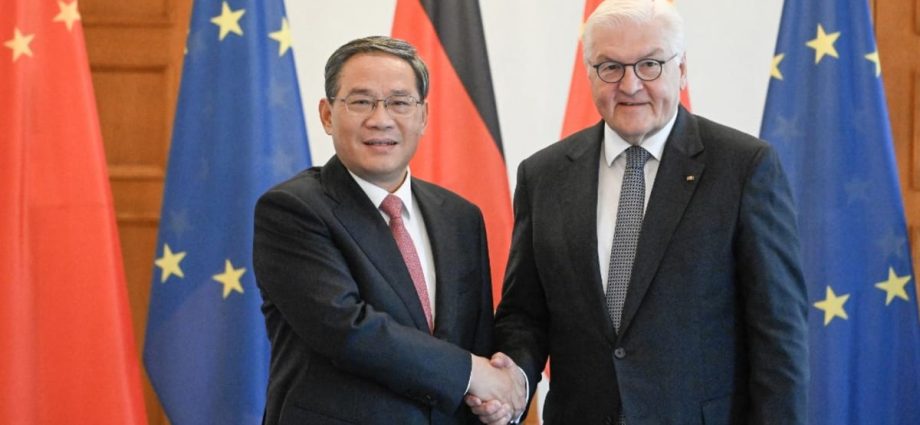
PUSH TO DIVERSIFY
Export giant Germany, by virtue of its economic might, has always enjoyed special ties with China.
Under former chancellor Angela Merkel, Berlin took a pragmatic approach of talking up economic opportunities while keeping less flattering opinions on rights and freedom behind closed doors.
That made China a key market for Germany’s exporters while also allowing Berlin to take in prominent human rights activists like Liu Xia, apparently without suffering any retaliatory consequences.
But the COVID-19 pandemic raised questions about relying on a far-flung partner with its own huge domestic needs for health essentials.
And Russia’s war on Ukraine turned the approach of economic rapprochement on its head.
With China refusing to distance itself from Russian President Vladimir Putin, concerns mounted in the West over its motives and reliability.
The European Commission last week warned that Chinese telecoms giants Huawei and ZTE posed a risk to the EU’s security and said it would stop using services that relied on the companies.
Diversifying has now become a buzzword for Germany’s elites, with Berlin wooing more partners beyond the world’s biggest powers.
“ECONOMY IN TROUBLE”
Inconveniently for China, the shift is happening when the Asian giant is experiencing an economic slowdown.
Sluggish exports and domestic demand are weighing on China’s post-COVID economy.
No surprise, then, that Li had picked Germany as his first stop abroad, analysts said.
Li is “in charge of fixing the economy, which is in trouble”, Ian Johnson, China expert at the US think-tank Council on Foreign Relations, told AFP.
“So it makes sense to go to China’s biggest trading partner in Europe,” he said, adding that Beijing needs “further investment and better business ties with companies, such as BASF, VW and Siemens”.
Thorsten Benner, director of the Global Public Policy Institute, told AFP that it was “open whether Germany continues to play the game of pretending there is broad agreement with Beijing”, in a meeting he called a “stress test”.
Alternatively, it could choose “a new path of straight talk and limiting the final statement to areas where there is a genuine path forward for cooperation”.

